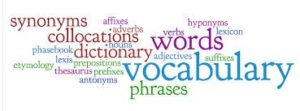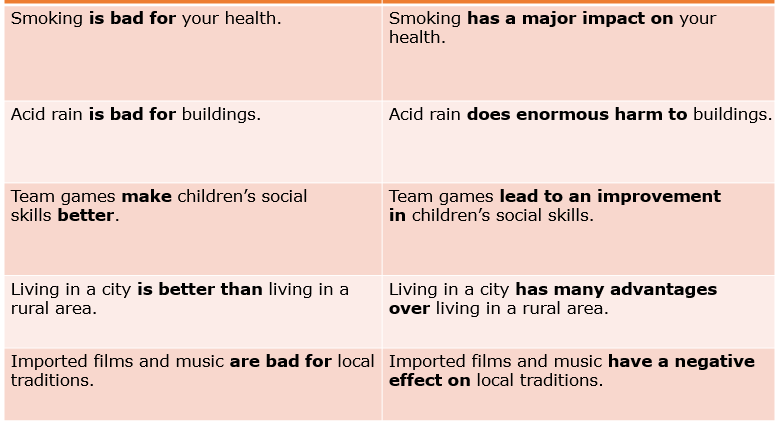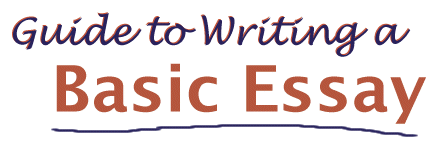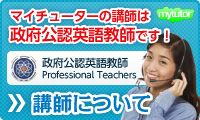
▮ 質の高い語彙と内容は高得点の秘訣!
▮ スピーキング バンドスコアを上げるには !
それでは、左右の文章を比較してみましょう。 明らかに右の文章の方が、高度な文法と適切な語彙の配置で勝っていますね。
しかしながら、高度な語彙や構文に不安がある場合、あなたの知っているシンプルな語彙をお使いください。 あまりに完成度を追いかけ過ぎて間違えるといけません。
ーーーーーーーーーーーーーーーーーーーーーーーーーーーーーーーーーーーーーーーーーーーーーーー
A good vocabulary and content are important for the speaking exam. Adopt good presentation skills such as eye-contact, pauses, speaking not too fast or slow. Read up and visualize a few possible questions. Make your answers exciting and passionate. The IELTS examiner expects you to show ‘some awareness of style and collocation’ to reach a Band 7 or Band 8.
Compare the sentences – which is better?
| Smoking is bad for your health. | Smoking has a major impact on your health. |
| Acid rain is bad for buildings. | Acid rain does enormous harm to buildings. |
| Team games make children’s social skills better. | Team games lead to an improvement in children’s social skills. |
| Living in a city is better than living in a rural area. | Living in a city has many advantages over living in a rural area. |
| Imported films and music are bad for local traditions. | Imported films and music have a negative effect on local traditions. |
The sentences on the right are better because they show style because they have academic tone, and collocation because you are using the correct verb, adjective and preposition with the noun.
Remember that possessing a good stock of words is important, even more so than the writing exam where you have the luxury of review and edit. However, fluency takes precedence over vocabulary, and if you feel you have forgotten the words, it is better to display a level of fluency with simple terms you know rather than struggle with numerous pauses while searching for the perfect word.
Question:
What students have to do in IELTS Speaking Part Two?
a. The examiner gives the candidate a task sheet on which is written a topic that they must speak about on their own for one minute.
b. The examiner gives the candidate a task sheet on which is written a topic that they must speak about on their own for two minutes.
c. The examiner gives the candidate a task sheet on which is written a topic that they must speak about on their own for three minutes.













